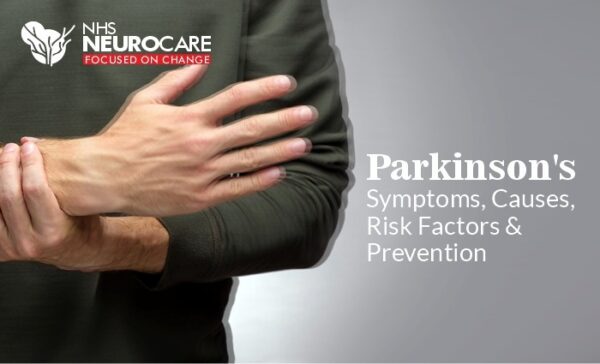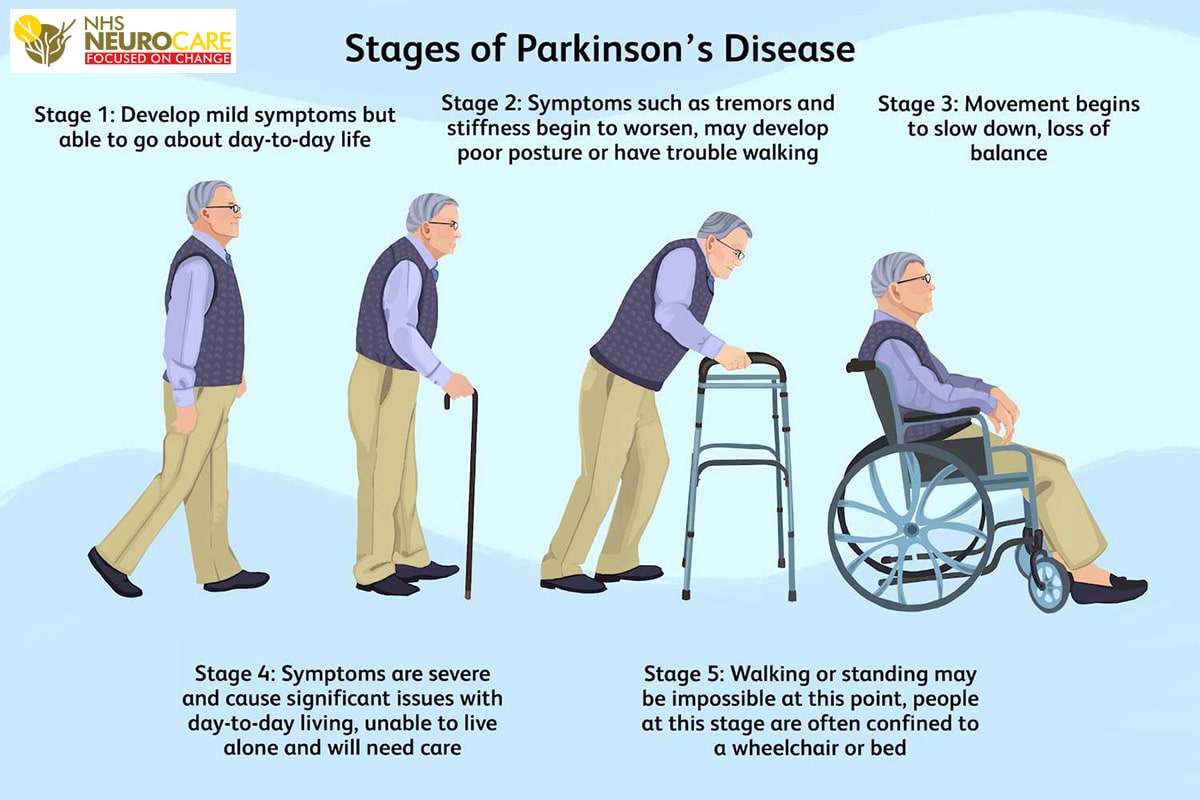Parkinson’s disease affects our nervous system and the parts of the body controlled by it. it is a progressive disorder and symptoms start slowly. Our Dr Sandeep Goel, the best Neurologist in Jalandhar, Punjab, India, specialises in treating this progressive disorder. The early signs are barely noticeable such as a tremor in one hand. With time, the condition may cause stiffness or slowing of movement. The early signs of this disease include little or no expression on the face, and no coordination between arms and legs while working. You may experience difficulty speaking or slurred speech.
The symptoms of this disease progress over time and get worse. The truth is that there is no cure for this condition, but medication can improve the symptoms significantly.
Parkinson’s disease symptoms
The signs and symptoms for this disease can be different for everyone. Early signs are usually hard to notice. Here we have quoted the possible signs of Parkinson’s disease:
- Tremor – usually begins in hand or fingers but goes away if you rub your thumb and forefinger back and forth. In the early days you might not notice it and the tremor may decrease while performing tasks.
- Slowed movement (bradykinesia) – after a certain period, your movements may slow down, and you may find completing simple tasks difficult and time-taking. For example, your steps may become shorter while walking or it become difficult to get out of a chair.
- Rigid muscles – this is painful and may occur in any part of your body.
- Impaired posture and balance – You may experience stooped posture or fall down or face balance problems.
- Loss of automatic movements – this disease reduces your ability to perform unconscious movement such as blinking or swinging your arms while walking.
- Speech changes – your speech may become slurry, or you may hesitate before talking.
- Writing changes – you may find difficulty in writing and also your handwriting may become smaller.
Parkinson’s disease causes
The actual cause behind this disease is still unknown, but there are factors that may trigger the condition which includes Our Best Neurologist Sandeep Goel in Jalandhar, Punjab, India, can provide expert guidance on Parkinson’s disease risk factors.
Genetics – Research shows that there are few specific genetic changes occur which lead this disease. But these common only if within a family many members are affected by this disease.
Environmental triggers – it has been found that exposure to certain toxins or environmental factors may increases the risk of this disease. But the extent of risk is smaller. This disease risk factors
Parkinson’s disease risk factors
Although the causes are still unknown our best neurologist, Sandeep Goel, emphasizes certain risk factors that trigger this disease. These includes:
- Age – surprisingly Parkinson’s disease usually begins in middle or late life, which gradually increases with age. The usual age of developing this disease is around age 60 or above.
- Heredity – if any of your close family member have this disease, then you are at increased risk of developing it too. The risk is even bigger if you have multiple family members affected by this disease.
- Gender – the statistics shows that men are more likely to affected by this condition than women.
- Exposure to toxins – as mentioned above, continuous exposure to herbicides and pesticides may increase your risk of developing this disease.
Parkinson’s disease prevention
As the cause of this disease is unknown, there are no proven way to prevent this disease. Although some research shows that regular aerobic exercise reduces the risk of this disease. Some studies also shows that people who consume caffeine through coffee, or tea are at lesser risk of getting it. Green tea is also reducing the risk of developing this disease. However, how caffeine protects against getting Parkinson’s is still unknown.
If you are experiencing any of the symptoms mentioned above, get yourself checked from a specialist. Early detection can slow down the growth of this disease. At NHS Neurocare, we offer extensive care for the patients with Parkinson’s disease. Get in touch to know more about us.
When it comes to neurological emergencies in Jalandhar, Punjab, India, Dr. Sandeep Goel emerges as the beacon of expertise and compassionate care. As the best neurologist in the region, Dr. Sandeep Goel is dedicated to providing swift and top-notch medical intervention during critical moments. Time is of the essence, particularly in stroke cases, and Dr. Sandeep Goel’s proficiency ensures a lifeline for those facing neurological challenges.
Beyond immediate crises, Dr. Sandeep Goel’s commitment to patient well-being shines through as he meticulously develops comprehensive treatment plans. These plans not only address short-term recovery but also focus on ensuring long-term neurological health. Act promptly, seek help, and place your trust in the capable hands of Dr. Sandeep Goel, our best neurologist in Jalandhar, Punjab, India.
His expertise is not just a label; it is a testament to his dedication to being the best doctor for neurological care. Your well-being is our utmost priority, and with Dr. Sandeep Goel, rest assured that you are in the hands of a seasoned professional who will guide you toward a healthier and more secure tomorrow. Trust in the proficiency of Dr. Sandeep Goel, the best neurologist in Jalandhar, Punjab, India, for unparalleled neurological care.


